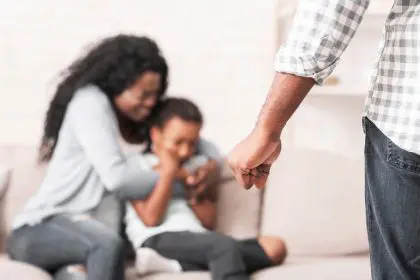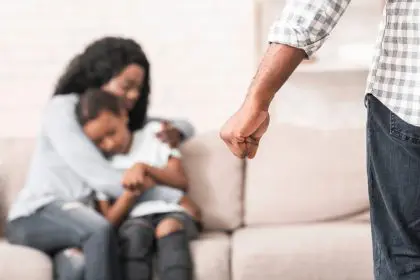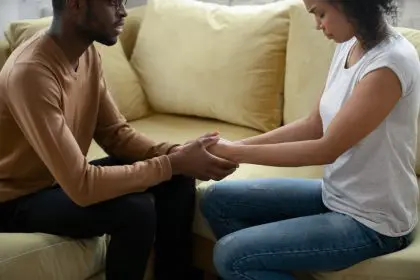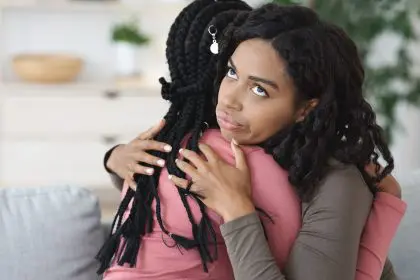
My son was 5 years old. I was in the middle of a separation with my now ex-wife and I went back to the house with him to get something. The locks had been changed. I was furious. My ex-wife came home and we started to argue. We were in the bedroom and I snatched the keys to her truck and threatened to take it with me. I ran down the stairs and as I was heading outside she jumped on my back and I pushed her off. A neighbor across the street witnessed this and called the police. I sped out of the driveway in my own car, furious and emotional until I was able to calm down.
Fast-forward nine years and my son got in trouble for pushing a girl. I called him and told him he should never put his hands on a woman and he said, ”You did it.” I asked him when and he began to recount the experience when I pushed his mom off of my back. I couldn’t say anything but sorry. I never once thought that he witnessed it and I never thought that pushing her would be viewed as me hitting her. I still feel the same way. However, a child may see it differently and obviously it has stuck with my son over time.
I’m sharing this because I’m not sure most people truly understand how our actions shape our children’s minds. I’m also not sure that people truly understand how domestic violence takes many shapes and forms.
The latest celebrity in the crosshairs of internet ire is rapper Fabolous. His longtime girlfriend, Emily B, accused him of punching her in the face repeatedly, knocking out two of her teeth. Court documents obtained by NorthJersey.com accuse Fabolous of hitting a woman seven times, resulting in “severe damage to her two front teeth.”
This news is very disturbing and extremely disappointing. Why would any man hit a woman — for any reason? Unfortunately, domestic violence is becoming a larger national issue. According to stats compiled by the Women of Color Network, an estimated 29.1 percent of Black women are victimized by intimate partner violence in their lifetime (rape, physical assault or stalking). Black women experience intimate partner violence at a rate that is 35 percent higher than that of White women and about 2.5 times the rate of other races. Black women are less likely to leverage social service or battered women programs or go to the hospital as a result.
How do we address this sickness that is plaguing our community? How do we change the narrative in a way so that our young men know that under no circumstance should they hit a woman? What do we do to encourage those who have been affected by domestic violence to seek help and counseling?
We must acknowledge that violence is a learned behavior. It is time to hold each other accountable and take proper action when any woman is assaulted. It starts with teaching our sons and our daughters the proper way to deal with their emotions.
After my youngest recalled that incident on the lawn, I took full responsibility for what I had done. I may not have knocked anyone’s teeth out, but that push left a stain on the mind of my impressionable child and now I have to repair this in a real way by showing my son how situations like that should be handled.
How can we get better? What do you think should be done? Share your thoughts below.

















